Danzangiin Nyamsüren (1949-2002) was one of Yavuuhulan's three principal students. Unlike both Mend-Ooyo (coming tomorrow) and Dashbalbar (coming Wednesday), Nyamsüren preferred to keep out of the spotlight, spending much of his adult life living and working in the small town of Ereentsav, on the Russian border, where his wife Handmaa worked (and still works) as an immigration official at the railway crossing. In his essay "Warmth," the journalist B Zolbayar wrote an account of a visit he made to Handmaa in Ereentsav following Nyamsüren's death (download my translation below).
Nyamsüren was influenced primarily by the atmosphere of Yavuuhulan's work, his intimate relationship with the landscape and with the natural world. In one of Nyamsüren's most famous poems, "The Four Seasons" (not reproduced in the text available below for download), Nyamsüren offers a long litany of praise for nature and for the area where he lives: each line describes one aspect of this area as "lovely," it is like a mantra almost, an enchantment.
Nyamsüren published three books during his life - Spring's Flow (1984), The Nature of Mind (1991) and From the Lonely Steppe (2001). This year, which would have marked Nyamsüren's 60th birthday, Mend-Ooyo's Mongolian Academy of Poetry and Culture will reissue these books, in addition to my translations in a one-volume edition. According to Handmaa, two further volumes remain unpublished, and I am trying to secure these texts for inclusion or, at least, for later publication.
G Mend-Ooyo (b1952) was born into a nomadic family. Trained as a teacher, and the second of Yavuuhulan's three main students, hehas now published over thirty books of poetry, criticism and essays, and has received numerous awards in recognition of his work to promote Mongolian culture.
Having worked with Mend-Ooyo for four years now, I have noticed that he is constantly writing, constantly thinking about how to encourage Mongolians to value their history and traditions. His basic thematic material can be seen from the text of Nomadic Lyrics (download below), translated by S Sumiya, Peter K Marsh and myself. Also available is the Prolog to Golden Hill, the work which regards as his magnum opus, and the one which he was most keen to have available in English. This is an extraordinary book - fiction and history and auto/biography and vision and poetry - and one which I think should find a publisher (adventurous publishers take note!) in Europe or the US.
Mend-Ooyo is foundera nd director of the Mongolian Academy of Poetry and Culture in Ulaanbaatar. He is developing a project to establish an international poetry center in the heart of Ulaanbaatar, dedicated to the memory of Yavuuhulan.
O Dashbalbar (1957-1999) was the youngets of Yavuuhulan's three main students, but also the one whom the other two recognised as somehow their leader and their teacher. He spent the first thirty-seven years of his life immersed in books and poetry and the land with which he felt a close connection. Then, in 1994, he was elected to the Great Hural as an independent parliamentarian, and proceeded in this way to lobby against the proposed Land Law, which would grant private ownership to tracts of the Mongolian state, which historically had been free for the nomadic people to use as pastureland and as a place to set up their camps. He died, at the age of only forty-two, in October 1999, in a mysterious death which some consider to have been murder by poisoning, in response to his political activity and popular support.
His book The River Flows Gently was published in 1986, and about half of it is reproduced for download below. This includes his famous love poem "For You," as well as a number of poetic prose pieces dealing with culture and the nature of art and beauty. In addition to my introductary essay to this book, you can also download the portrait by his friend and fellow-poet Mend-Ooyo (see yesterday's post), which includes a final section written a few days following Dashbalbar's death.
Tsogdorjin Bavuudorj (b1969) has published six books of poetry, one of which has been published in English (When Humans Become Grass) by Mend-Ooyo's Mongolian Academy of Poetry and Culture. In 2006 he won the prestigious Natsagdorj Prize in recognition of his poetry. Bavuudorj's work is very heavily influenced by the ideas promoted by Yavuuhulan and his students, but his expression and style is deeply influenced by spirituality and by an almost surrealist, visionary sense. The extract from When Humans Become Grass available for download comprises about a third of the book's contents, and when read next to the work of poets such as Mend-Ooyo and Dashbalbar and, looking further back, to that of the nineteenth century poet-monk Danzanravjaa, it will be clear that his sensibilities are rooted in the history and the traditions of premodern Mongolia.
T-Ö Erdenetsogt (b1971 who, like yesterdays hero Bavuudorj, is heavily influenced by Buddhism, was one of the cofounders of the BISHÜBI (an acronym for three words which roughly translate as "worshipping wisdom") movement during the late 1980s. He has published a couple of books of poetry including Setgelin ogtorgui (my translation of which, Sky of Mind, was published last year). Today's download constitutes about half of that manuscript, and shows the influence both of Buddhism and of the work of the c19 writer Danzanravjaa. Notice how frequently these poems contain elements of prayer and spirtual aspiration: the Mongolian original of this book contained pictures of Erdenetsogt praying before an altar, and it is highly unusual for Mongolian writers to acknowledge religious or spiritual affiliation.
Erdenetsogt now lives with his wife and young daughter in Dublin, Ireland. Unfortunately, I have no pictures of him, but I do have the following image, of me holding his daughter last year in the offices of the Mongolian Academy of Poetry and Culture, and that single degree of separation with today's featured poet will have to suffice for now
L Ölziitögs (b1972) is one of a growing number of younger poets who, while not totally rejecting the traditional thematic and stylistic concerns of Mongolian poetry, are nonetheless looking outside the country and incorporating and adapting the ideas of foreign literatures into their own work. Her short stories (represented in today's downloads by "A Bond" and "The Aquarium") recall the Latin American magic realists, and especially Jose Luis Borges, although there is a sinister side which is also reminiscent of the early C20 writer Natsagdorj.
The third file available below contains thirteen of her poems, which are similarly modernist in spirit and treatment, although more traditional somehow in their themes. Together with such writers as G-A Ayurzana, G Delgermaa, B Odgerel and B Galsansuh, Ölziitgs represents a spirit of innovation and experimentation which, until recently, had been all but lacking in the literature.
These poems are also important because they are some of the only poetry translations made by my friend and colleague, Sh Tsog. Tsog was a fine man and a fine translator, originally trained in Germany as an economist, who became bored with Francis Fukuyama and who embraced the vision of revealing Mongolian literature with me to the west. We collaborated on Very Big White Elephant: New Voices in Mongolian Poetry (eventually published in Ulaanbaatar in 2007) and on An Anthology of Mongolian Literature (2008), but both of these books appeared after his untimely death, at the age of 55, in 2006.
So there you have it. Modern Mongolian literature in seven days. How wonderful is that? Of course, seven writers cannot in any way tell very much about the wide range (even within the tradition) of techniques, styles, themes and voices. And Mongolia is a country of poets, after all, a country where poetry is the defauly literary expression and where people sing and recite poems long into the night, and drink too, so long as they remain standing up and relatively conscious.
Where now then? Contact me at wickhamsmith@gmx.net, the Mongolian Academy of Poetry and Culture at info@poetry-culture.mn (English is fine) and order books either from the MAPC or from Shopmongolia. To close, here is a picture of some happy poets halfway up Bogd Uul (the holy mountain outside Ulaanbaatar) on Poets' Day a couple of years ago. How I would like to claim that i was there and had taken the picture, but alas this is not the case.
You might recognise Mend-Ooyo (second from left) from Amarhüü's picture...the one in the beige ski-hat is Bavuudorj (Thursday's hero) and the one at far right is Urianhai, the venerable sage of Mongolian letters and a very wonderful and influential poet.
I'd like to thank Stacey Harwood and David Lehman for having me blog this week, particularly since neither I nor my subject matter constitutes the best of American poetry. Nonetheless, I hope that this week has opened the door onto this unknown literary land just a crack and that you, dear readers (as they still address us in the introductory essays to Mongolian books), have enjoyed the journey.
Finally, I promise, I received the following text from Mend-Ooyo this morning, commemorating what would tomorrow, March 15th, have been his teacher (and this week's first subject) Yavuuhulan's 80th birthday. I understand that my English translation of his collected poems will also be published tomorrow. This is the text which Mend-Ooyo posted on his blog this morning, about the events surrounding Yavuuhulan's early death at the age of 53 in February of 1982.
In 1956, Nikita Krushchev openly and explicitly criticised the record of Josef Stalin and initiated a thaw in Soviet society. Begziin Yavuuhulan (1929-1982) who, at that time, was beginning his career as a poet and translator, saw the opportunity to wrench Mongolian literature from its almost two decades languishing among the repetitive grimness of paeans to Stalin and Lenin, encomia to noble peasantry and opprobria against capitalism and the non-communist world. His idea was to revive the literary traditions of pre-revolutionary Mongolia - respect for the land, the changing seasons, the celebration of the history and lineage of the Mongolian people, and even (occasionally, clandestinely) an acknowledgement of shamanic and Buddhist spirituality - and to clothe them in the stylistic and thematic language of the modern world. The movement which resulted from his efforts was the "New Tendency" (in Mongolian Shine handlaga) and this can be seen as preparing the ground for much of the poetry which was composed in Mongolia during the latter half of the twentieth century.
Yavuuhulan wrote a great deal, and he gathered around himself students who would become the most influential poets of the 1980s and 1990s. He was also a prolific translator, and is well-known for his work on Sergey Yesenin. Here are some examples of Yavuuhulan's poetry, which illustrate I think what he was trying to do with the tradition, together with an essay written by his student G Mend-Ooyo, one of the subjects of tomorrow's post and the director of the Mongolian Academy of Culture and Poetry in Ulaanbaatar.
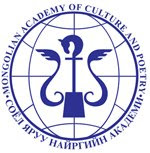




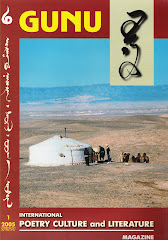
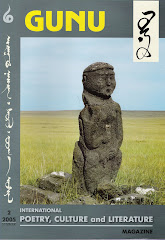
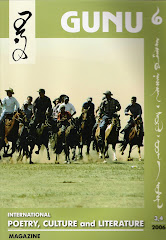



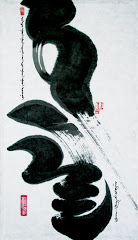
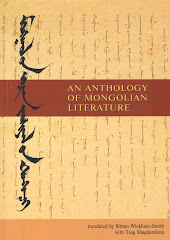
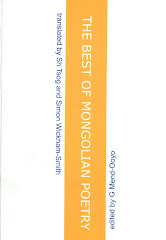


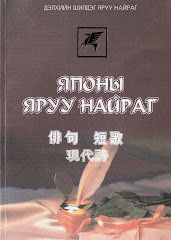

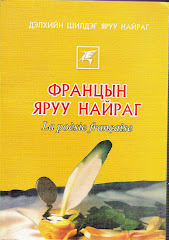
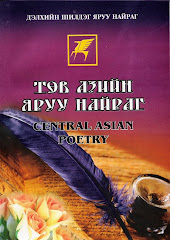
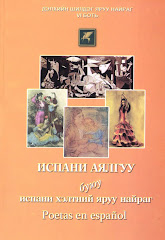
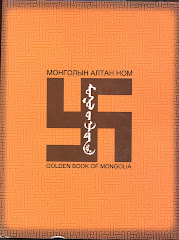
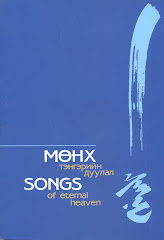
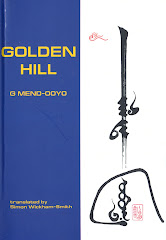
No comments:
Post a Comment